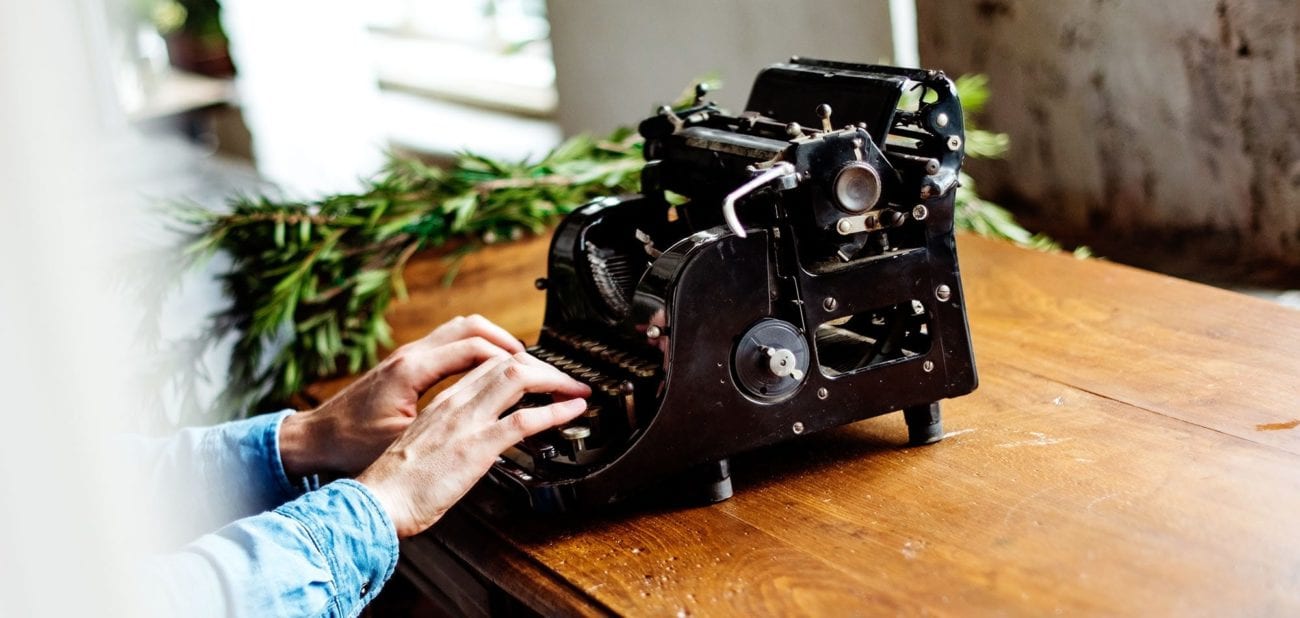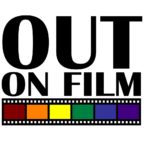
Always now, forever independent: Film Daily screenwriters interview
We here at Film Daily are delighted to offer our readers the chance to hone their screenwriting skills with our monthly competition. For our inaugural contest, we attracted talent from across the globe and saw an exceptional quality and attention to detail in the entries. With our first contest focusing on genre-led scripts, we received a wide range of fresh & exciting submissions in drama, horror, comedy, and science fiction.
From professional writers & teachers, to screenwriting students & complete amateurs, all of our winners come from a diverse range of backgrounds, proving anyone can develop the knack for storytelling. All it takes is a creative mind and the dedication to put your ideas to paper.
With the right attitude and some inventive flair, your story could become the next hot property at independent film festivals across the globe. We chatted to our winners about their backgrounds in writing, what inspired them to craft such thrilling examples of genre stories, and what the future holds.
Film Daily: How long have you been writing?
Elise D’Haene, with Amy Goldman & Jessica Spencer (Beaver, Las Vegas): My first writing gig for screen was on Showtime’s Red Shoe Diaries featuring David Duchovny. I owe a great debt to the co-creator, Zalman King, for taking a chance on me.
Jennifer Katz (Film Festival Fodder): Short stories when I was very young, poetry since middle school, and writing plays and entering young playwright contests in high school. TV sitcom scripts came next and my first feature screenplay evolved about 20 years ago.
Kelly McInerney (Job Quitters): I’ve been writing since I was a little kid.
Theresa Anne Carey (The Lady Pirates): I’ve been writing for about ten years. They say it takes ten years of writing to move into the big leagues, and I hope I’m narrowing in on that goal.
Austin Alexander (Losers!): I’ve been writing since my teens, when I attended a charter school that uniquely empathized on a filmmaking and acting curriculum.
Magarita Rozenbaoum (Seamstresses): We recently found a short story I wrote when I was four about horses & owls that lived happily together in a forest, so I’m going to say that was my debut as a writer.
Kelly Jean Karam (Kidicide): I have been a storyteller all of my life.
Pamela Nash (A Dog’s Life): When I was ten years old I wrote a story about getting a camera for my birthday, which my parents made a colossal fuss over.
Christopher M. O’Brien, William G. Penny, and Mike Porter (smartHOME):
William: Ever since I’ve been holding my crayon / pencil incorrectly, I’ve been trying to make people feel and think with words.
Christopher: I’ve been writing on and off since 2002.
Mike: This project is the first time the three of us have collaborated on a script. William’s ideas are gritty, real, and often unexpected. Christopher has a lot of writing experience and so much science fiction and popular culture knowledge. My contribution is story structure.
Ethan Evans & Sean Toshach (The Dirty Secret): We both began writing screenplays during our first year of University in late 2015, which is also where we first met!
Do you have any formal qualifications in screenwriting?
Elise: I have the good fortune of teaching screenwriting in the undergraduate & MFA program at Point Park University, which has an extraordinary Cinema Arts program – truly a hidden gem.
Jennifer: My minor in college was creative writing, including screenwriting classes. I also worked with script doctors in the past. In some cases, I feel the contests that provide useful feedback have also been educational and have aided me in honing my craft.
Kelly M: I took a class in college and then a UCLA extension class last year.
Theresa: I am formally trained as an attorney, holding a Juris Doctorate of Law. I left the practice of law when I started having children. Shortly thereafter I began writing screenplays in snippets of time while the kids were napping. I am midway through an excellent MFA program (Spalding Low-Residency MFA in Louisville, Kentucky), which has made a huge difference in my writing. Best decision ever!
Austin: School introduced me to it and cemented my decision on a career as a filmmaker. However, the hands-on experience and formulation of my style is where I consider myself to be self-taught.
Margarita: Nope! I actually went to UCLA with every intention of going into international relations. I taught myself how to properly format a script by Googling “how to properly format a script.”
Kelly K: I have no formal qualifications in screenwriting – just outstanding mentors and friends.
Pamela: I studied several styles of writing in college. My first screenplay won a literary award (and I’m currently wearing the gold & opal ring I bought with the prize money.)
William: Living and experiencing life is probably my largest formal qualifier. A short stint in film school is probably a distant 3rd or 4th.
Christopher: I took a screenwriting course as part of a film degree program years back. Between us, we’re all published writers or songwriters with experience in acting and no-budget film production.
Mike: I didn’t study screenwriting in college. I’m actually a registered nurse, but I’ve made my own informal study of screenwriting and participated in a few screenwriting conventions.
Ethan & Sean: We are currently in our third and final year of studying Film Production at the University of Gloucestershire, where we both specialize in writing and directing.
Have you had any success in other contests?
Elise: We were thrilled to win Best Feature Comedy in the Film Daily Screenwriting Competition. The script was placed in a few other contests but the award from Film Daily was just the shot of confidence we needed to keep the Beaver alive.
Jennifer: Film Festival Fodder has placed in a dozen contests & festivals thus far. It’s been handed the Audience Choice Award for Screenwriting, Second-Rounder, Finalist, Runner-Up, and Semi-Finalist, as well as Official Selection, on multiple occasions.
Kelly M: I’ve won some other smaller screenwriting contests.
Theresa: Yes, my screenplay for The Lady Pirates has done well in several contests. My very first screenplay, The Donner Party, was a top finalist in Francis Ford Coppola‘s American Zoetrope Screenwriting Competition and I’ve finished well in the Nicholl’s Fellowship with several scripts. Film Daily has been a very rewarding experience for the exposure they provide and the advice winners receive from a professional network executive, agent, or script reader. They’ve run an excellent contest in their inaugural year.
Austin: With every acceptance, rejection, win, or loss comes progress. I often get set back with more “No’s” than I’d wish. But even those never keep me down because those occasional “Yes’s” always go a long way.
Margarita: Film Daily’s contest is one of the first I’ve entered, so thank you for the external validation! It’s this sort of thing that helps a writer keep going.
Kelly K: I am proud to say Kidicide has garnered close to twenty awards. I believe its hidden social message regarding the toxicities we bring into our homes being as lethal as what we introduce to our environment has given the reader a fresh re-examination of nature vs. nurture in an original way.
Pamela: You can find me in the semi-finals and finals of most contests I enter, but not-so-frequently in the top three – it’s maddening. I’m the “always a bridesmaid” of screenwriting. Film Daily is my first top-spot win for this particular script.
Mike, William, and Christopher: smartHOME was also selected as a finalist in the 2017 Los Angeles Film and Script Festival and is currently a semi-finalist in the Screencraft Family 2017 Screenwriting Contest. An earlier draft of the script was a quarterfinalist in the 2017 PAGE International Screenwriting Awards, too.
Ethan & Sean: Unfortunately not as of yet! It was so amazing to even be involved in this contest, let alone win an award! However, we have just completed a short horror film called Sweetie, which we wrote and directed together, and we hope it will be successful in forthcoming festivals. We’re also currently in production of our final graduate film – a dark fantasy short called Standby.
Your script is a great example of your chosen genre. What is it about the genre that most appeals to you?
Elise: I’ve always wanted to write a feature film in the vein of 9 to 5 meets The Heat – an action comedy in which a group of women have to band together to defeat the bad guys.
Jennifer: I have always been drawn to comedy. Humor is a vehicle for my characters to manage stress & fear. Comedic release is also incorporated to combat pain surrounding loss.
Kelly M: I love comedy; it is a huge part of my life and I kind of immerse myself in it. I perform standup comedy regularly, my favorite movies are comedies – it’s a genre I just gravitate to.
Theresa: I find history fascinating and particularly enjoy the in-depth exploration of other times and places, but mostly I enjoy getting into the mindset of people from the past. I also love making people cry.
Austin: I wanted to draw an atmospherically absurd yet emotionally grounded experience. Tonally ambiguous stories like that are what intrigues me, and that was the inspired basis for my writing.
Margarita: I’ve always liked historical fiction because it feels like a mystery to be solved. There are recorded facts that you can’t really mess with, but then there are all these gaps of information.
Kelly K: I wanted to write a story not dependent on cheap scares, but rather what is rooted in the innate human fear of being infected with something or someone and it’s out of your control.
Pamela: I’m a lifetime fan of the Stephen King brand of horror. He writes about highly relatable and recognizable people who struggle through extraordinary circumstances.
William: Science is cool, but I dig fiction even more. Creating crazy scenarios, characters, and things that don’t and won’t make sense is the line I try to walk.
Christopher: I’ve enjoyed the science fiction genre since childhood. At its best, sci-fi can be not only entertaining, but thought-provoking & inspiring.
Mike: Every story has the ability to take the audience on a journey and show them something about life worth examining. But science fiction also makes us wonder about what the future holds.
Ethan & Sean: The Dirty Secret is predominantly science fiction, but we wanted to incorporate the syntax of the horror genre, focusing on creating tension and mystery within the narrative.
You won the contest for your deeply layered and realistic characters. Where do you channel that dose of reality?
Elise: In the world of Beaver, I immediately knew the manager of the club was a fierce African-American trans woman (think Laverne Cox), and her best friend was an endearing Dolly Parton impersonator (though in my heart of hearts we wrote the role for the transcendent Dolly Parton to actually play a Dolly impersonator.) In essence, it’s David vs. Goliath: a disenfranchised group of diverse strippers take on a corporation. Unlike typical action movies featuring male protagonists, Beaver, Las Vegas is about how women fight back – more Xena-fueled Pussy Riot than solo male hero.
Jennifer: I am continually aiming towards creating characters to which people can relate. In doing so, my writing focuses on who & what I know. Realistic characters are always more interesting to me; the more layers the better. In the case of Film Festival Fodder, I wrote about a world in which I was completely entrenched for nearly 20 years – the film festival.
Kelly M: As selfish as this sounds, I like to kind of put a little bit of me and my friends in the characters. Sometimes it is the simplest things, like for instance, the main character works in a Home Depot-like store and I worked there in high school.
Theresa: As a kid, for years I had a recurring nightmare of being aboard a ship that sunk during a violent storm. Consequently, I have a morbid fascination of sorts with ships and stories set at sea.
Austin: The protagonist was practically born of the vast landscape of the internet and social media. He’s comfortable in the subcultures there, until something in the real world catches his attention. Setting forth a desire to distance himself from that place of comfort comes a deeper self-struggle – can someone truly change if their traits all seem to be predestined and inborn?
Margarita: I believe that as writers, if we can suspend our personal experiences for a few hours and trust our brains are layered with ancient data on the human experience, we can channel these true personalities. They’re fictional, but they’re true. And I mean, I have to rely on something bigger than my own understanding, because I’m writing about a brothel in the 1800s – what can I really personally know about that?
Kelly K: The story utilizes themes of deception, parenthood, family, and grief. Fortunately for me, being a seasoned woman immersed in a lifetime of mistakes, the story unravelled rather quickly.
Pamela: I’m a very good eavesdropper. I pick up on accents and speech patterns easily. I work hard to make sure my dialogue shows character.
William: Parts of these characters are either parts of you or people you’ve encountered. They are flawed like we wish we all weren’t.
Christopher: We felt strong, likable characters are something films in this genre are often missing.
Mike: I love people and their stories: the trials they’ve endured; the lessons they cherish. As the writing on smartHOME progressed, we all felt a connection with the characters – especially Lizzy & Peter – and the bond they have as brother & sister.
Ethan & Sean: We find the biggest help when creating a three-dimensional, layered character is to really analyze the world around you and emphasize characteristics from people you know.
Your world building was really well-rounded – where did you find the inspiration for this story?
Elise: The story for Beaver, Las Vegas was triggered when my partner, Celeste Gainey, and I were singing “Viva, Las Vegas” – God knows why – and we switched it to “Beaver, Las Vegas”. In an instant, the idea for the story was born.
Jennifer: Having worked in the film festival world for almost two decades as a publicist & programmer, I often recall some of the more bizarre moments I encountered. Between the VIP guests and the audiences, I have plenty of fodder to write about.
Kelly M: I just took things I experienced in my life or in my friend’s life. I was also just inspired by being stuck. It’s so hard to be successful, especially in the entertainment world – most 20-somethings can relate – so I made a show everyone who’s stuck can relate to.
Theresa: The Lady Pirates is based on a true story, which of course gave me the bones to build the story upon. I grew up with seven (yes, seven!) sisters and always wondered what it would be like to be surrounded by brothers, which is why the story of Anne Bonny & Mary Read initially appealed to me.
Austin: My former school’s society was definitely more unusual than most high schools. If anything, “the weird kids” arguably outnumbered the “normal” ones by standing out the most. This was the environment I was inspired by.
Margarita: My mom came back from a vacation to Washington and said, “Did you know Seattle was built on prostitution?” I thought Seattle was built on coffee & flannel. I was so curious, that I bought a plane ticket and went on an underground tour of the old brothels. You can walk through these catacombs and feel what it must have been like to be a patron (or an employee). I was creeped out but also completely fascinated.
Kelly K: Ha! I am a swamp girl. There’s an alligator who lives in my luscious backyard that continues to survive the onslaught of herbicides & pesticides.
Pamela: The problem with the horror genre is there has to be a body count. My first challenge was coming up with a person or people with whom I would be plausibly motivated to harm. I love animals, so I started with that – people who abuse animals make me so sick and upset.
William: Just look around. We are right at the cusp of a full computer takeover with drones, self-driving cars, homes that speak to you – it’s in our backyard. That’s probably the world Bill Gates already lives in.
Christopher: A news item a few years back about a family’s “smart” baby monitor being hacked by some unseen harasser initially got us thinking about how people are quick to embrace the newest technologies without thinking of the consequences.
Mike: Elon Musk & Stephen Hawking have been talking a lot about the risks of AI for the last few years. We wanted to explore that for an average American family living out their lives.
Ethan & Sean: One of the most beneficial aspects of University for us is that we have a close group of friends who we are comfortable discussing ideas with. Therefore, we often come up with creative concepts and can easily discover what works and what doesn’t.
What tips would you give to new writers?
Elise: I tell my students to always be writing something. That, and read scripts constantly. To learn the craft, you have to practice it.
Jennifer: As creative souls, the creativity often carries over into ways of seeking out distractions. This leads to one of the most difficult confrontations – re-entry into your creative world when you’ve been away from it for too long. Fear, anxiety, and lack of self-confidence all rear their ugly heads (and the rejections don’t help.) But if you keep writing, you will feel more secure about your abilities and become better-equipped at drowning out the negative energy.
Kelly M: In a way, keep a schedule. Don’t put off writing no matter how stuck you are with ideas or writer’s block. Sometimes just writing in a stream of consciousness in your notebook for a few pages kind of wakes your brain up for ideas.
Theresa: Life experience makes for great writing. Because the great stuff hides in the darkness, don’t be afraid to live life to its fullest and accept that all the ups and downs will only help to make you a better writer. Age and maturity are your friend.
Austin: The most arrogant people I’ve known are the isolated nobodies. Chances are the most successful people you’re inspired by are humble.
Margarita: Classes & books are great, but with writing (as with anything, probably), the breakthroughs come from doing the damn thing. So you just have to start with what you have and write something the best way you know how.
Kelly K: My advice to other writers is to write what turns you on – create because you can’t not create and learn the art of loving to type Fade In as much as Fade Out.
Pamela: I recommend all new writers get themselves a copy of Aristotle’s Poetics and Lajos Egri’s The Art of Dramatic Writing. They’re hard work reading them, but no writer should be afraid of hard work.
William: Save your money, find a good trade, and keep writing. If you feel like writing is your life’s work, do it! Do it through all the drama of life. When nobody’s paying you for it, you’ll have that trade to keep you hungry and fighting. Don’t give up – it’s your life’s work for God’s sake!
Christopher: Read and watch as much as you can in a diverse array of genres and subject matters. Write the movies that you would like to see.
Mike: I would only add that you have to share what you’re writing with others and be open to their feedback. Trying to break into screenwriting isn’t easy, and you’ll receive a lot of critical feedback along the way. But you can’t let that shut you down – we all have to fail forward.
Ethan & Sean: One useful tip we have is to log all of your ideas – no matter how small – as more often than not they can be incorporated into future ideas. Another tip is to know your ending, so you can work towards a satisfying climax. Our last tip is to never give up on your ideas. The more time you put into developing an idea or story, the better it will be.
What tools would you say helped you with your craft?
Jennifer: I’m an extremely visual person, and as such, I am very observant of the people around me. When I watch a film, special attention is paid to the characters’ facial expressions and mannerisms, in addition to the ways in which they interact with one another. I carry this over into my writing.
Kelly M: Getting inspired by watching television & movies. Sometimes research is just watching something on Netflix to get motivated to write something yourself.
Theresa: One of the things I love about Spalding’s MFA program is its approach to workshopping. It use a strengths-based approach (What do we love? What’s working? etc.), which builds strong, trusting bonds amongst writers.
Austin: Reading Hollywood film scripts was the first obvious help to find guidelines on formatting and description writing. The software I use is Fade In.
Margarita: Reading a lot of screenplays. I tried reading technical books on plot and character development, but I find that thinking about writing just gets me in my head and constricts my ability to express anything real. For me, the best thing is to write a draft based on instincts and intuition, and then if I’m feeling insecure, I go back over it with a technical manual afterwards.
Kelly K: For me, the best tools in this trade are learning to accept rejection and rewrites, and to be openly grateful to writers more prolific than I, who are willing to encourage and help with my story.
Pamela: Writing exercises are essential. I have a notebook just for practicing descriptions of things – describing all the sounds I hear on a Brooklyn street in the summer, describing all the ways in which I can show a person’s size without using words that mean small, medium, or large.
William: Read the greats. Watch documentaries on their lives. Get inspired. Go live a more interesting life than they did. Get out and talk with weirdos. Have a double Patrón on the rocks with double lime. Listen to their stories, know when they’re lying, and see where they take you. Try not to dip into stupid very often. Oh wait, just to write a screenplay? Get a how-to book.
Christopher: E-mail and phone calls were paramount in a long-distance collaboration.
Mike: We wrote the script using Final Draft software. There are several online resources that are helpful when writing scripts including websites that discuss a lot of the tropes of each genre.
Ethan & Sean: It’s fundamental to find someone you can truly open your ideas up to. It can be very daunting at first, but there will always be someone willing to help; it is truly the most beneficial thing you could do when developing an idea.
What inspires you to keep writing?
Elise: We’re at an important cultural moment. I believe that the best, most provocative work being done right now in film & television is by women and people of color. I am knocked out and madly inspired by Issa Rae’s Insecure on HBO, Pamela Adlon‘s Better Things on FX, and Frankie Shaw‘s SMILF on Showtime. These shows are powerful, transformative, and unabashedly in your face.
Jennifer: My main inspiration for writing is that I don’t know any other way to be. Writing is truly a part of my physical, mental, and emotional being and when I don’t write, I feel out of sorts. Other motivation is my determination to see one of my films on a screen in my lifetime. If my scripts are never made into films, no one will ever see them and my work will never truly live.
Kelly M: The pay off. I go to SXSW and get the chance to interview filmmakers sometimes and during the payoff – the day they premiere their movie or show – they are beaming with pride, joy, and happiness.
Theresa: I am happiest in life when I am deep into a screenplay – it is my happy place, even when the story or the process becomes brutal & painful. I love writing! When I get stuck, I read other screenplays, go to the movies, or take a long drive, all of which motivate me to keep going. But at the heart of it, I am inspired by people, by history, and by true stories.
Austin: Life itself.
Margarita: Well, it’s either that or doing something safer that I don’t like as much (I already tried the latter.)
Kelly K: As long as God inspires me with a fertile imagination, ordinary people will inspire me.
Pamela: I have a writing group for accountability, and I have writing contests for deadlines – they are both excellent sources of feedback.
William: To be honest, I’m not sure what else to do. I feel obligated to keep creating, and my creativity comes and goes. It was a real blessing running into Christopher & Michael. I would’ve never got this opportunity if it wasn’t for these dudes.
Christopher: The belief that our ideas are original and haven’t been seen before.
Mike: I’m inspired by the idea that whatever life is – suffering or joy – we’re in it together. When I come across a wonderful story, I’m reminded of that.
Ethan & Sean: Sharing stories we are passionate about and captivating audiences with something that you have created is a beautiful feeling. We keep writing in hope of inspiring others like our favorite filmmakers have inspired us.
In five years, where do you hope people can watch your work?
Elise: I am writing a half-hour series now with the working title Old Dykes, which – like much of my writing – is blunt, funny, graphic, sad, and infused with love. At this moment, I’m immersed in the characters and the world, and I’m visualizing that five years from now the show will be in its third or fourth season on TV.
Jennifer: I would love to be sitting in a sold-out screening of one of my films. I’m all for the new visual formats, but I am also a traditionalist. There’s nothing like the thought of sitting in a theater surrounded by other film lovers and the scent of popcorn, gazing at a screen filled with characters I’ve created.
Kelly M: At SXSW, I hope! Honestly, anywhere that people would want to see it. If we want to be technical, I think this is a great show for Comedy Central.
Theresa: On the big screen and in the comfort of your own home, everywhere around the world!
Austin: The crummy art theater at your town’s back corner, and that’s just hoping the pirated torrent isn’t up by then.
Margarita: In five years, I hope my work is included with every iPhone purchase like that one U2 album. I will also accept Netflix.
Kelly K: Five years from now, may I be sitting in a theater watching a mother’s quest to build a perfect nuclear family, who realizes the horrific events invading her home are the work of the younger man she impulsively married and his sociopathic son.
Pamela: Honestly, I hope people will see my work in schools one day. I would love to write something that speaks so well to the human experience that teachers think it’s worthwhile to use for classroom discussion.
William: In the year 2023, hopefully I won’t be sleeping in the back of my big rig and y’all will be watching something entertaining that I was able to help conceive / write with a super cool soundtrack containing a song I wrote. Keep an eye out for more of our work and keep an ear out for my music – Billy Penny & the 1%.
Christopher: In movie theaters or on-demand with whatever device viewers choose.
Mike: Streaming has changed how a lot of people watch movies, and I feel like it’s exposed more people to more content than they would have otherwise known. I hope that means what we write can be shared with a wider audience, but I will always prefer the big screen!
Ethan: I’m obsessed with the horror genre – specifically the supernatural subgenre – and aim to write as many feature-length horrors as possible. I’m hopeful one day I’ll be able to share one of them with cinema audiences on a global scale.
Sean: Alongside continuing to make short films, I would love to write & direct a micro-budget feature film until hopefully pursuing a career as a writer in TV or film. We (Ethan and I) hope to continue collaborating with future projects as we have similar film tastes, an amazing working relationship, and similar aspirations for the future.
Inspired? Enter the next edition of the Film Daily screenwriting contest here.





